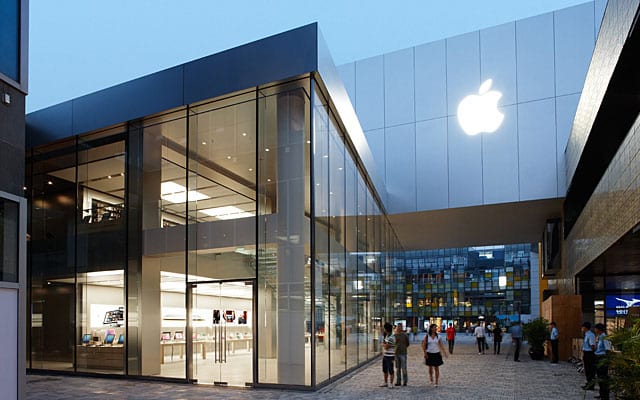The huge traffic witnessed by Apple Inc. (NASDAQ:AAPL) stores located in malls has enabled the company to bargain for lower rent, which is in turn is adversely affecting the rents paid by other tenants. It has been estimated by Green Street Advisors, a real-estate research firm, that an Apple store alone can increase the sales in a mall by 10%.
Earlier, there had been a trend that it was the only specialty retailers in the mall who paid most of the rent while the department stores either owned their own stores or paid very little; apart from the charges paid for the common space, taking benefit from the traffic at the mall. This is in comparison to the current situation where Apple pays almost 2% of its sales a square foot in rent while other in-line tenants pay almost 15%.
In case of a mall, it is the amount of sales expectation, which is a deciding factor for the rent required to be paid by the retailers. However, Apple is still not able to obtain deals like other specialty retailers who promote cross shopping and are the real anchor tenants of the mall. On the other hand, shoppers who come to Apple store may still leave without looking for anything else.
The spokesperson of the company, Nick Leahy, refused to divulge details about the actual rent paid by Apple or even its sales.
Starting with just 2 retail stores in 2001, Apple presently has 450 stores worldwide, including 265 in U.S. itself. Though the stores attract almost 1 million customers a day, sales from these stores comprised only 12% of its annual sales of $183 billion for the year ended September 27.
The company launched the new Apple watch on Monday and with it, has entered the world of high -class fashion. Appropriate measures are being taken to accommodate space in the Apple stores where people can shop for the smart watch.
The average sales made by an Apple store amounts to $6,000 per square feet though it can cross even $10,000 in some of the fast selling stores. This implies that the amount of rent paid by the company is quite high. However, there is a catch here. The company does not pay any additional amount, required to be paid by other tenants, if the sales exceed a preset amount.
Lower rent paid by Apple stores implies that the mall owners try to extract higher amounts from other store owners. It is on this account that the retailers are now asking the mall owners to exclude Apple sales from total sales to avoid obtaining disproportionate rent amounts.









